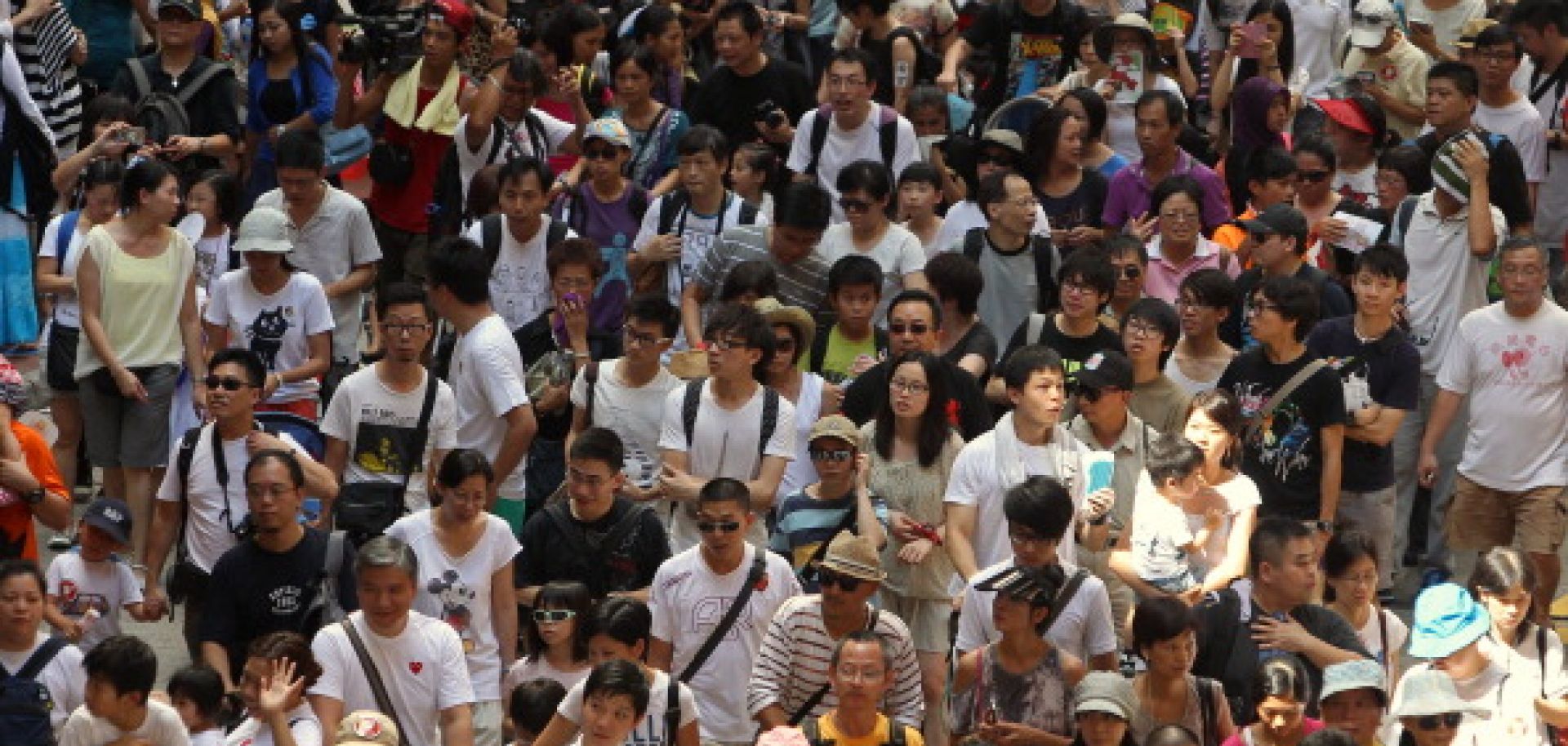ASSESSMENTS
China: Beijing's Dilemma in Hong Kong
Aug 3, 2012 | 10:30 GMT

DALE DE LA REY/AFP/GettyImages
Summary
Tens of thousands of residents marched in Hong Kong on July 29 in opposition to a new national education plan seen as introducing a pro-communism account of mainland history and the Chinese political system. The march happened just a month after the inauguration of Hong Kong's new government, the election of which inspired intense public speculation about the candidates' qualifications.
The protests represent a significant setback for Hong Kong Chief Executive Leung Chun-ying's Beijing-backed administration, and public opinion of Hong Kong's government has reached record lows in recent months. In this environment, Beijing's main goal is to ensure a smooth transition of power for Leung — not only to restore the image of the Leung administration, but also to cement mainland China's influence in the city-state. However, a seamless transition seems increasingly unlikely, and rumors are circulating that Beijing will consider replacing Leung if public discontent does not fade.
Replacing Leung is not desirable for either the Hong Kong government or Beijing. The process of removing a Beijing-backed official would embarrass the Chinese central government and potentially exacerbate political turbulence in the special administrative region. And underlying the current political unrest is the growing challenge for Beijing of consolidating its hold on, and popularity in, Hong Kong.
Subscribe Now
SubscribeAlready have an account?
